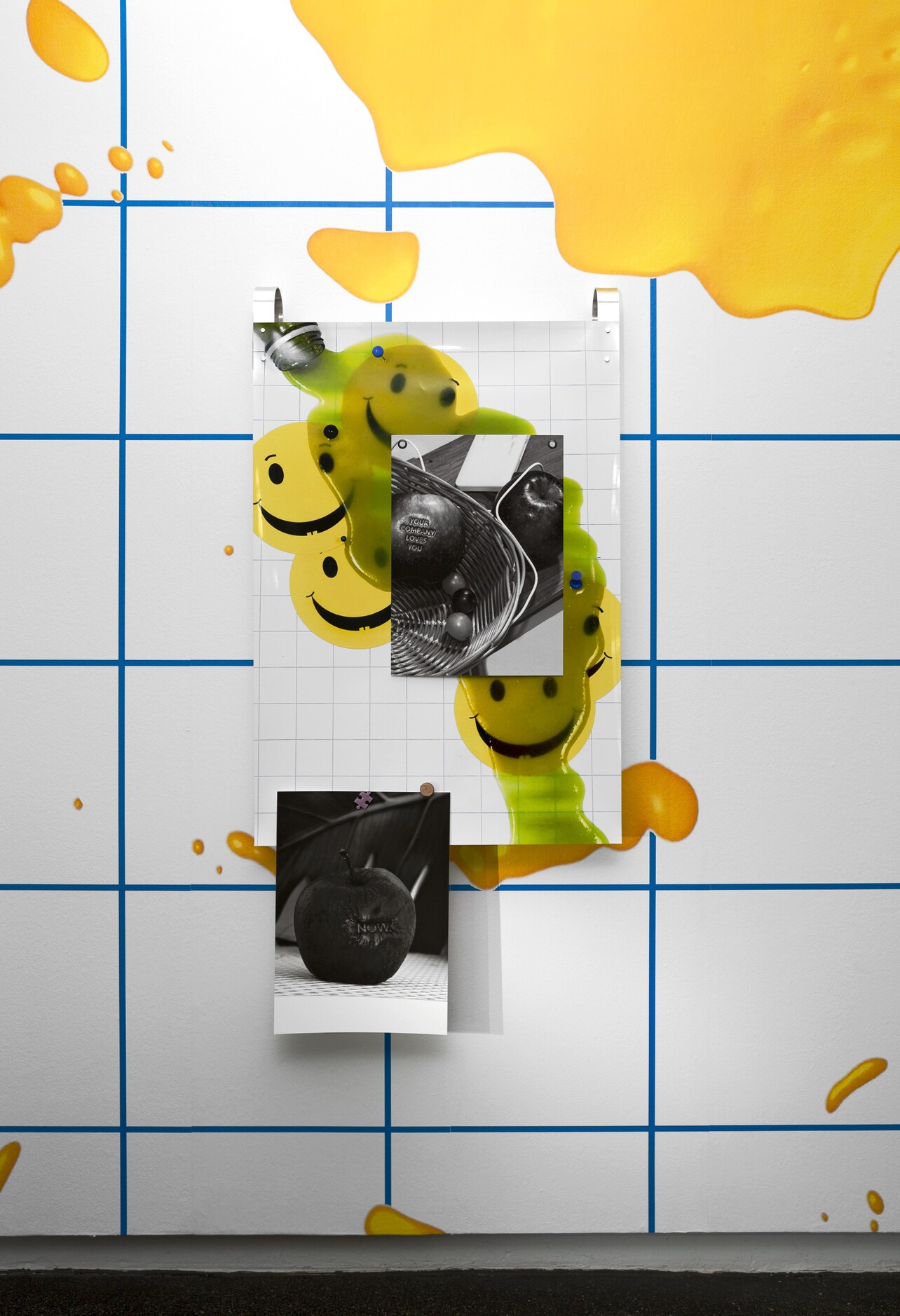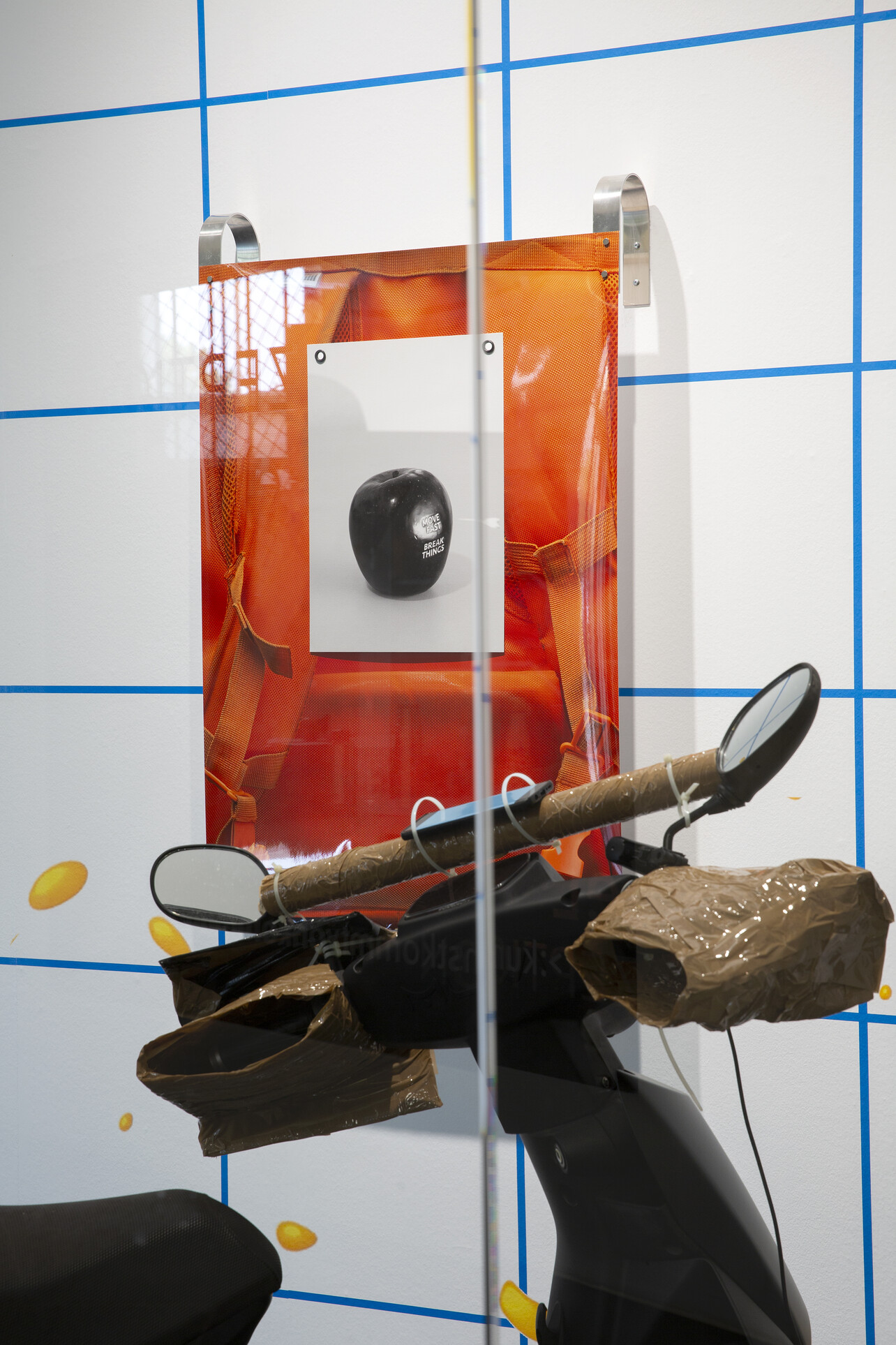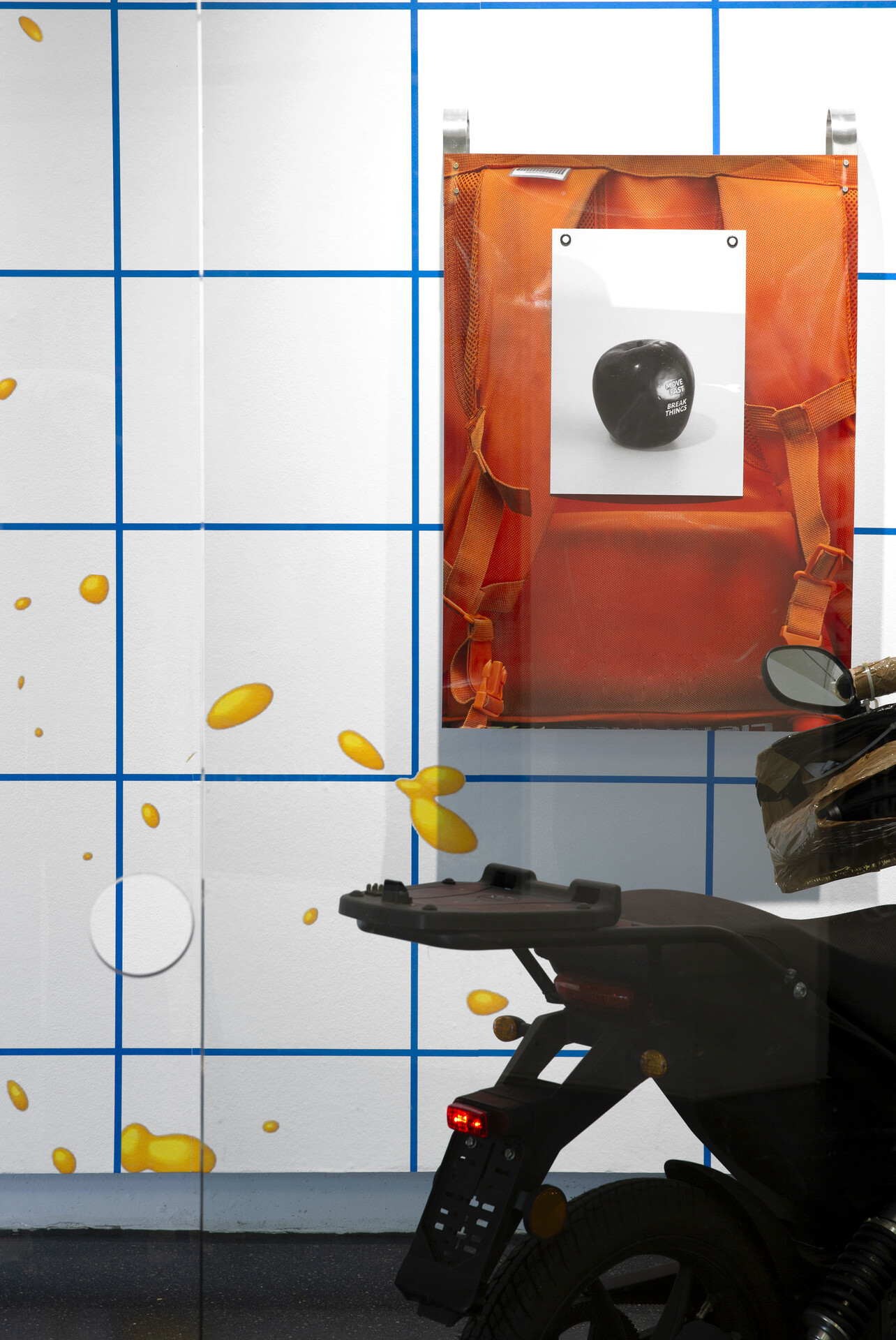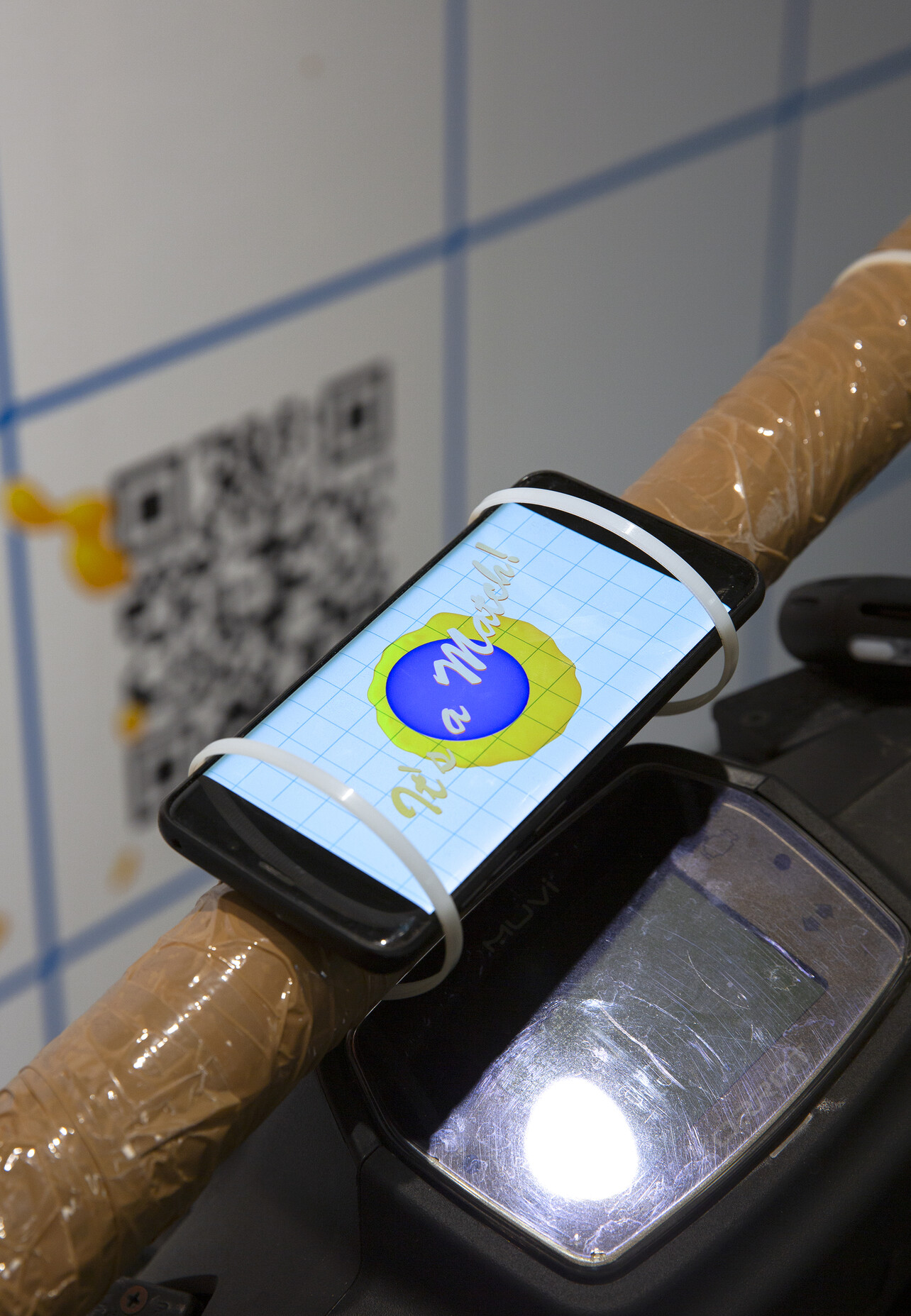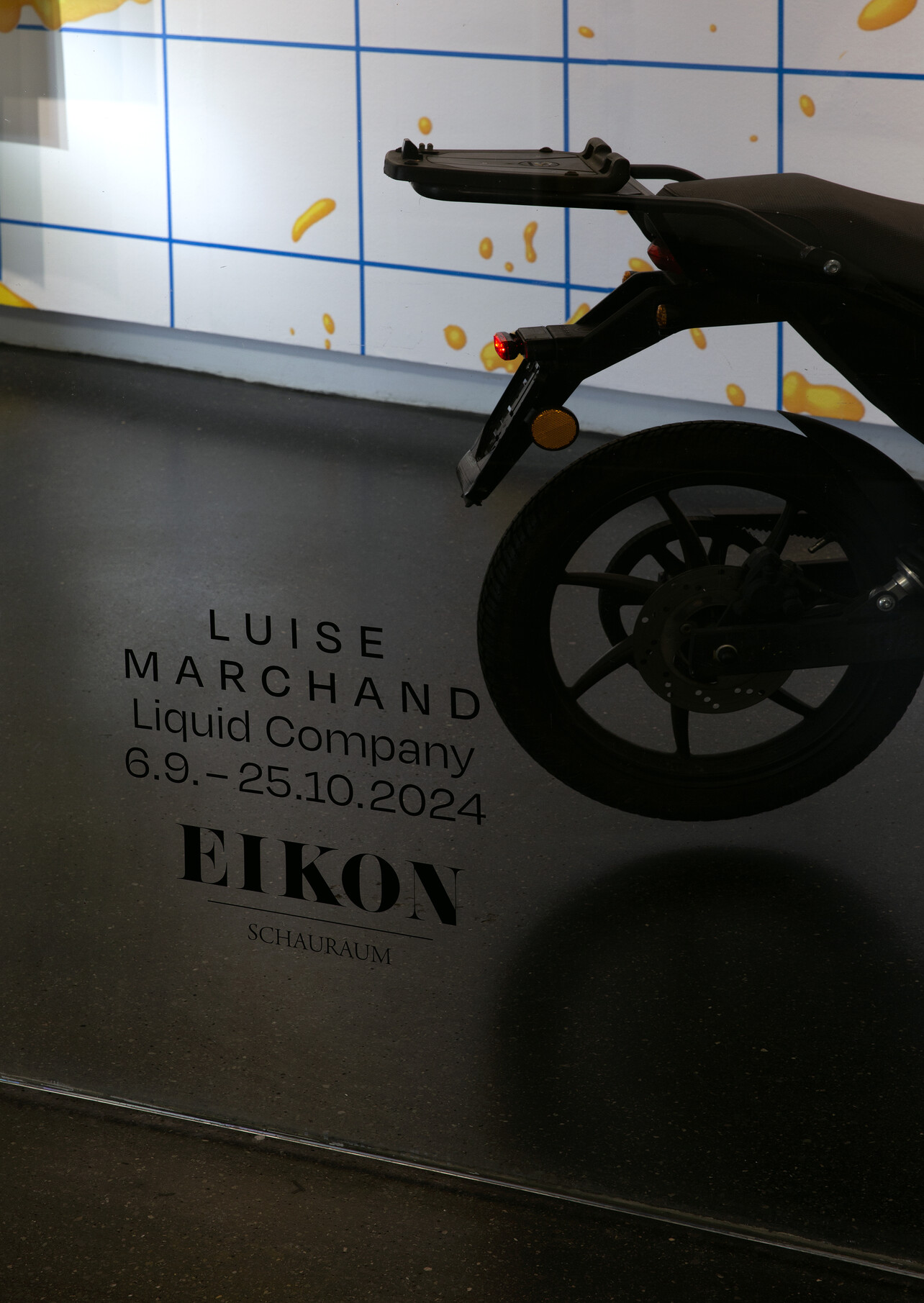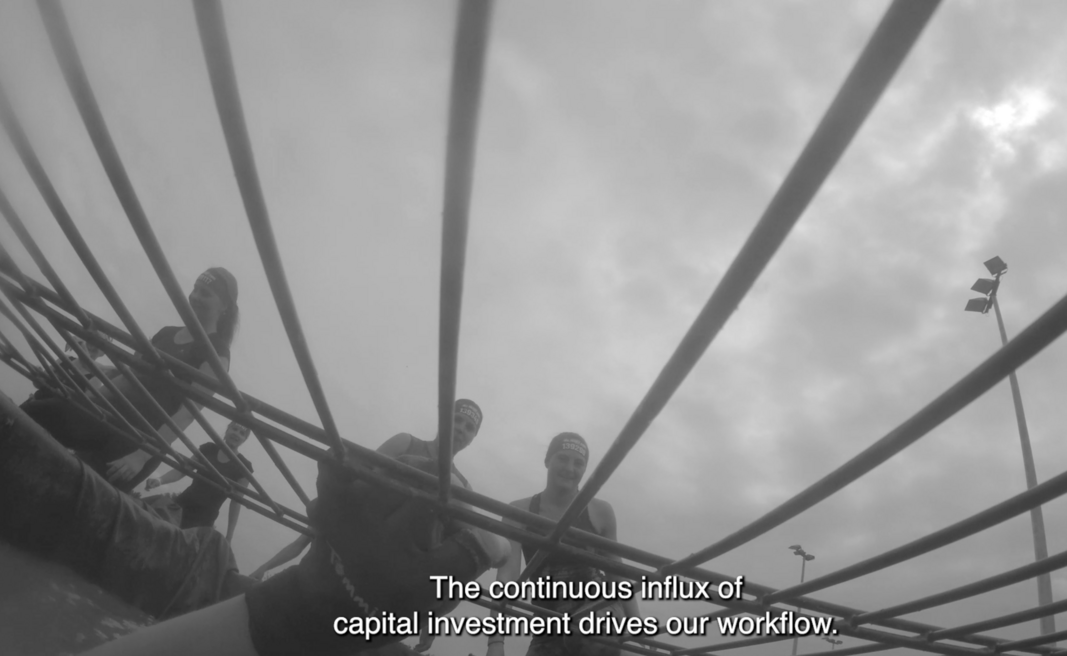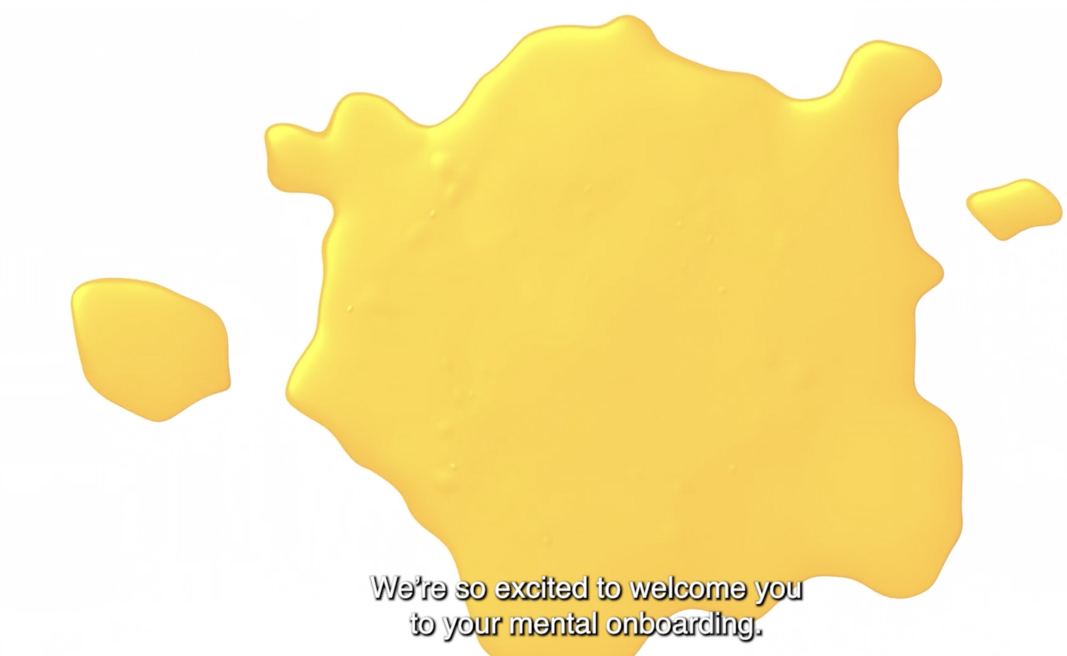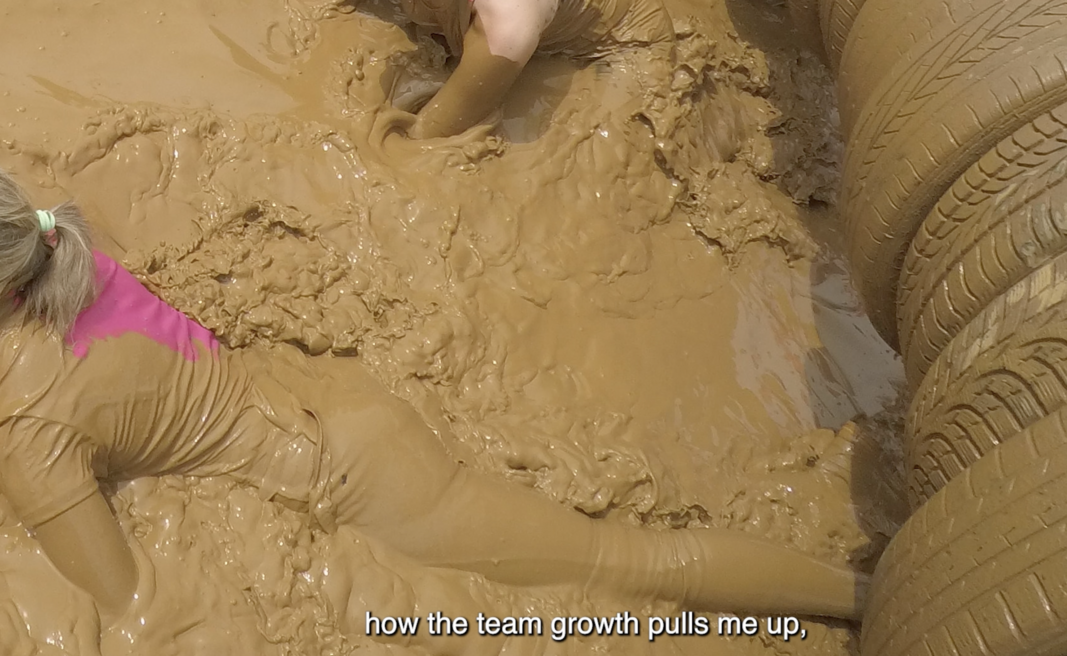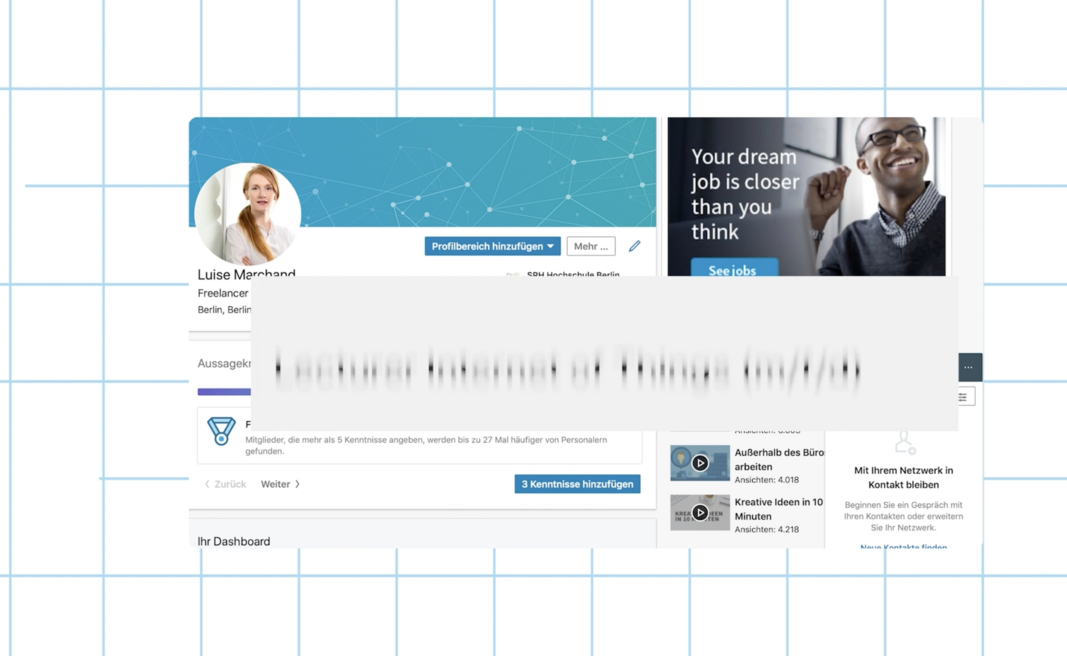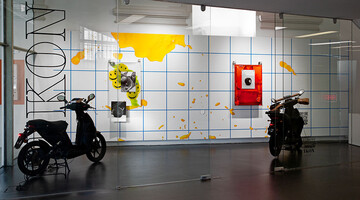
A leaking society: Luise Marchand in Vienna
The artist Luise Marchand, invited in cooperation with EIKON, is currently one of eight artists-in-residence at the MuseumsQuartier Wien. Her project Liquid Company, which deals with new forms of employment which are particularly popular with start-ups, can be seen in the EIKON Schauraum until October 25, 2024. A conversation between Nela Eggenberger (EIKON) and the artist.
Luise, your work deals with the working conditions of the modern performance society. What sparked your interest in this topic, was there an initial impetus for „Liquid Company"?
The origins have to do with my family. In my family, we have been self-employed for many generations, work plays a very important role. Even as a child, I assisted in my parents’ business and grew up putting work before family matters or health. This attitude is certainly also due to my family’s East German socialist background, where work was not only an economic necessity, but also had a key social position within the East German social system. In the GDR, work was not just a means to an end, but defined social status, identity and a sense of belonging. In my artistic practice, I reflect not only on the individual, but also on the social dimension of work in today’s performance society.
With„Liquid Company" you address a new kind of self-employment. What does this look like and what role does self-marketing play in it?
In the spirit of the platform economy, you offer your work on online platforms and you are actually only paid for your appearance, for the work you do. Hence the term “gig worker”. The apps behind them usually serve as employment agencies rather than employers. This means that regular employments are bypassed, there are no colleagues, there is only potential competition, and no social benefits such as health insurance, pension fund or unemployment benefits have to be paid. This affects 43 million gig workers across the EU.
Self-marketing plays a major role on some platforms that offer services such as graphic design, care work, manual labor or consulting. This is less the case with delivery services, which are the subject of my current exhibition in the EIKON Schauraum in the MQ Schauräume. Their major problem lies in the fact that the so-called “riders” are promised a collective agreement, but this usually does not materialize. Since mostly marginalized groups without citizenship work as riders, this means a certain dependency and a great risk. As freelancers, they receive neither minimum wage—they are paid per order—nor sickness pay. These working conditions are a breeding ground for precarious living situations.
What I experience as particularly interesting about you is that you are able to get to the bottom of the issues you deal with—you were actually working as a rider in Vienna a few days ago. What was your shift like?
It was organized as part of a „Wienwoche" event, a festival for art and activism, which was also about occupational safety and health. “We wish you a safe ride” was registered as a performance in which people represented riders so that they could take part in training sessions on labor law and working conditions, which were offered in Arabic, Farsi, German and English. So I was on the road as a representative of a rider and also took part in an onboarding session, as training and integration processes are now called. Here, for example, it was pointed out to me that the restaurants where you pick up your orders are often rude to the drivers. As a rider, you are a stress factor for them, as the delivery services specify a timeframe within which the orders have to be ready. You are also annoying for the restaurants—it is not uncommon to be instructed to enter through the back entrances.
So you were on duty as a stand-in so that the actual rider could take part in a training course about his rights as a worker—that’s quite absurd. Have you also spoken with the riders themselves?
Yes, before my workshift I met some riders at the meeting place who had just had a workshop on how to organize as workers and how democracy can take place in a working context. One rider, in whose country of origin the political situation is very tense at the moment, said that he was angry and disappointed that even in his current work as a rider in Vienna, people talk about democratic working conditions, but there is little evidence of it.
You also address this foggy feel-good bubble, which is often shaped around precarious working conditions, in your video work „From Me to We", which can currently be seen in the EIKON Schauraum—and which is appropriately played on e-scooters that are typical of messenger services. Would you like to take us briefly through this video work?
The video is primarily about the new worlds of work in which these gig workers operate and about companies that are committed to a new work philosophy. The idea for this came about when I was looking through a lot of job advertisements shortly after graduating and noticed that—no matter what position was advertised—the same language was always used. I was also struck by the insane positivity in the imagery, the kind of promise you see in advertising photography. I tried to incorporate this visual language and the recurring phrases into my work. Thanks to a scholarship, I was able to take a year to apply for these very different jobs and document the process. At the beginning of the video, you can see some of my LinkedIn profiles, which I populated with suitable photos, skills and contacts depending on the job advertisement, and the corresponding job suggestions that were shown to me based on my profile. This part of the video is narrated by a male-sounding voice leading an onboarding session in the form of a meditation. The second part of the video is hosted by a female protagonist who follows exactly these onboarding promises and begins to question them.
On October 15, you will expand „Liquid Company" with a work fed by the experiences of your Vienna ride and present it in the EIKON Schauraum. Do you already know what you want to process from your tour as a distributer? What do you particularly remember?
These experiences still need to sink in. I found it exciting to do the workshift in a city that I didn’t know very well myself, as I had the feeling that I was acting even more in a role observing society. The feeling of being a disruptive factor for stressed pedestrians, drivers and commuters during rush hour was also very intense. Perhaps I will process these experiences in a collage, a video work, a sculpture or a text work, but that is still completely open.
Until then, we will remain curious. Thank you very much for the interview!
____________________________________________________________________________________________________________
Luise Marchand, lives and works in Berlin. In an open call, the artist was able to prevail against 260 applicants from 41 countries with „Liquid Company” and convince the jury (consisting of Verena Kaspar-Eisert, MuseumsQuartier Wien, Pia Draskovits and Nela Eggenberger, both EIKON) of her project for the EIKON Schauraum. On October 15, this exhibition will be expanded to include works created during Luise Marchand's residency at MQ.
Luise Marchand: Liquid Company
Midissage: 15.10.2024, 19h
Exhibition: through 25.10.2024
Location: EIKON Schauraum | MQ Showrooms
